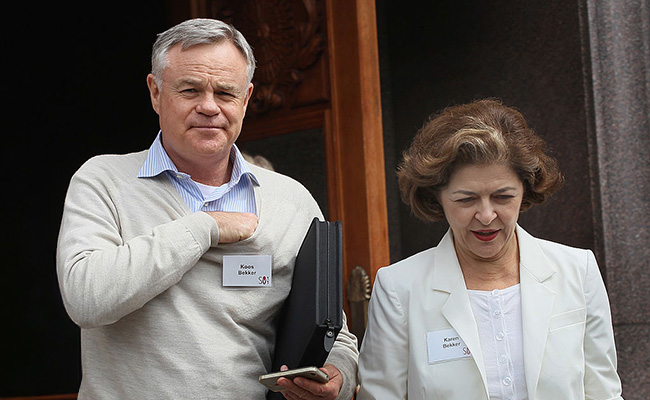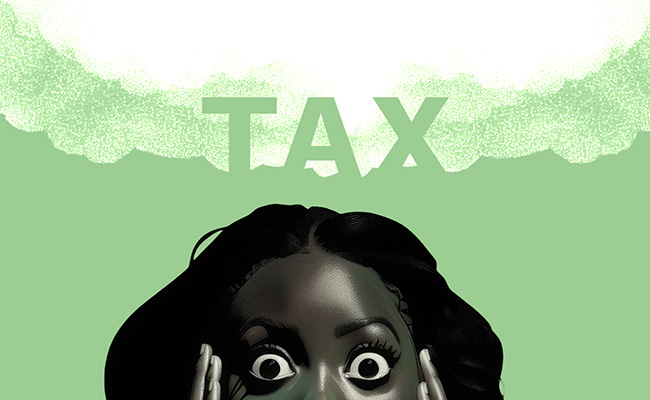This year has been a wild one for world stock markets. We had our first crash since 2020, initiated by Donald Trump’s “Liberation Day” tariffs, which induced widespread panic-selling in April. And then, widespread buying, some of it arguably FOMO-induced. Yet US-China tensions are still at an all-time high, with Trump threatening to throw an additional 100% tariffs onto the fire over China’s rare earths export controls. Elsewhere, people are fretting over an AI bubble, and there are whispers of a potential credit crisis.
Suffice to say, it’s no surprise that people may be looking to put their money to work elsewhere.
Say hello to “alternative investments”. Essentially, these are anything other than equities, bonds or cash. Akshay Karan, chief investment officer at Altvest, broadly breaks them down into five categories: real assets, like property; commodities, like gold or silver; hedge funds; cryptocurrency; and collectibles.
To Karan, the positives of alternative investments are that they “are generally non-correlated to the market, and they often offer a higher return than traditional investments”.
Which is not to say that traditional investments – like equities – haven’t paid off. The JSE, for example, has gained almost 29% this year, thanks in large part to its gold shares and Naspers. The S&P 500 index is 14.5% ahead and, at a forward price-earnings multiple of 23, close to the most expensive it has been in more than 20 years.
Still, in periods of economic instability, “people are quite attracted to the idea of something that generates higher returns”, Karan explains, using crypto as an example. “Even though the broader economy was volatile during the global pandemic, people loved the idea of crypto because it could mean a double-digit return in a day.”
Alternatives make an upfront mention too in Anchor Capital’s latest strategy report: chief investment officers Nolan Wapenaar and Peter Armitage write: “We are supporters of alternative assets (including hedge funds, protected equity structured products, physical property, etc) with better defensive characteristics during volatile periods. This is a new asset class for most South Africans, even though it commands a significant share of the investment wallet for family offices abroad.”
They expect local investors to benefit by increasing their exposure over time. “As interest rates come down through the rate-cutting cycle, we expect that the attractiveness of alternatives will increase,” they argue.
Not all alternatives are high risk, and you can get some stable returns out of them too. “If you measure risk in terms of volatility, then some of the private credit funds are very low risk,” says Gary Booysen, portfolio manager at Rand Swiss. “The return is incredibly stable because these are well-understood businesses.”
The single biggest alternative investment in South Africa is property, according to Karan. “Property ownership is a great source of wealth generation and transfer historically. I think that dynamic is starting to shift a little bit now, but over the last few decades it has been the single greatest source of wealth generation for most ordinary South Africans.”
However, you can’t just flip a switch and sell a house, and converting such an asset into cash takes time. The biggest risk for alternatives is a lack of liquidity. Unlike stocks, you cannot turn around your alternatives easily, nor with the certainty that you will be getting a transparent price for them.
Yet this is not necessarily the biggest downside. For many investors, the benefit of an alternative is also not just in its monetary value.
“A traditional investment often only has utility to the extent that it is an investment, while an alternative investment can often give you utility by virtue of owning it,” says Karan. “Now, that is also an investment, but there’s something additional to it. There’s a sense of pride in ownership. There’s a sense of resonance with what that represents.”
For this reason, collectibles are an attractive, serious asset class. Karan points to things like “fine wine, watches, whiskey casks, something even like Pokémon cards, which I love”.
Phone a friend or ask the audience
But these are not easy markets to break into, especially in the specialised world of collectibles, where a sophisticated knowledge of the items is needed. To the uninformed investor, investing in alternatives can feel like an increasingly difficult game of Who Wants to Be a Millionaire?
“If I want to understand how to value a growth stock, I can go and reference thousands of academic reports or technical disciplines. If I want to value a rare Pikachu, there’s no such thing,” Karan says.
Of course, when it comes to certain alternatives, like gold, there is an inherent understanding of value. “If you’re talking about investing in Krugerrands, I think that’s very broad based, you can have any man on the street invest in that,” Booysen says.
But he says that when it comes to private equity markets, it can be a bit like the Wild West for new investors. “You don’t have the regulatory protections of an exchange, you don’t have the transparency that comes with public market reporting, and you don’t have proper price discovery.”
Michael Zahariev, founder of luxury goods company Luxity, explains that collectibles like watches aren’t a get-rich-quick scheme, but long-term personal investments that must be well researched.
“We always encourage clients to buy a watch for the love of it first – the craftsmanship, the heritage and the way it makes you feel. The investment potential should be a welcome secondary benefit.”
This can be a bit of a tall order if you don’t have millions on hand to invest. Price is another issue that holds alternatives back from reaching a wider market, and where stocks simply have them beat.
“They are inherently exclusionary to most people,” Karan admits. “If you want a meaningful art portfolio, the minimum purchase price would be several tens of thousands of rands, if not millions of rands. So, the truth is that the minimum purchase price is just too high for you to ever have that exposure.”
On the other hand, “you can own a stock at whatever price works for you”. And with instruments like fractional shares and exchange traded funds, the stock market is far more democratised than the world of alternatives.
What to watch out for
That doesn’t mean alternatives are totally unattainable; in fact, the resale market of tangible alternatives is thriving even more than the first-hand market. Both Karan and Zahariev point to the second-hand luxury watch market, where resale value rose from an increase of 87.5% in 2021 to 104.9% in 2024, outperforming both inflation and property in South Africa.
“As the gold price has increased and the Swiss franc has appreciated in value, new Swiss watches have become very expensive, so they’ve become too expensive for even the ultra-wealthy,” is Karan’s explanation for the surging price in second-hand Rolexes and Patek Philippes.
Watches hold their value for much longer than other alternatives, with Zahariev pointing to the iconic Rolex Submariner as a long-lasting example of a collector’s watch. “In essence, watches are presented as an asset that can make an investment portfolio more resilient without sacrificing overall performance,” he says.
And they’re easier to sell – anywhere.
“However, much like property, success depends heavily on selecting the right model and buying at the right price,” says Zahariev.
Alternatives are not an investment miracle, but they have their place.
And there are relatively inexpensive options out there – Altvest’s Credit Opportunities Fund allows ordinary South Africans to invest in private credit for just under R3 a share on the JSE.
“You get very poor investment products that are almost predatory, all the way through to amazing investment products that really will do exceptional things for clients,” Booysen says of alternatives. The key is to understand the difference, and decide for yourself if the risk of buying a brilliant cabernet over a Capitec share is one you’re willing to take.
Sign up to Currency’s weekly newsletters to receive your own bulletin of weekday news and weekend treats. Register here.












